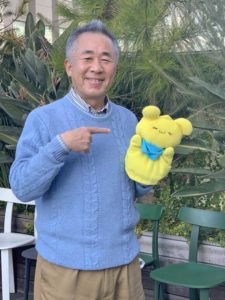Keynotes 2022
Thursday, August 25th
9:15 – 10:15am (JST)
Clara Fernández-Vara
Associate Arts Professor at the NYU Game Center

Friday, August 26th
8:00 – 9:00am (JST)
Dr. James York
Senior assistant professor, Meiji University

Saturday, August 27th
15:15 – 16:15 (JST)
Mr. Yoshihiro Kishimoto
Level 98 gamification designer and sage-level representative of the Japan Gamification Association

Jゲーミフィケーション 日本の現状 -なぜゲーム大国日本は、現実にゲーム要素をもっと取り入れないのか?
私が大学の授業にゲーミフィケーションを活用し始めたのは2011年頃からです。そして2019年からは日本ゲー
ミフィケーション協会の代表賢者として、広く対象を社会人に広げ、ゲーミフィケーションデザイナーの育成
やゲーミフィケーション活用事例の収集を行ってる。我々は、ゲーミフィケーションを、「身の回りのことに
、ゲーム要素を入れて、人をを楽しくやる気にさせる」こと。身の回りのことには、仕事、勉強、家事、人生
などが入る。特徴は、楽しいモチベーションメソッド。若い世代との親和性が高い。と定義した。
私は以前の29年間のゲームデザイナーの経験から、能動的な参加、達成可能な目標設定、称賛の演出など、ゲ
ームを面白くする要素を、ゲーミフィケーションデザイン6要素に転用した。
Jゲーミフィケーションとは、日本独自に進化したゲーミフィケーションとして造語した。ゲームにおいてレベ
ル上げやコンプリート、ガチャを好む日本人には、Jゲーミフィケーションが有効である。それが活用された、
ラジオ体操、回転ずしやのルーレット、お遍路、地域創生ゲームなどの事例を紹介する。
我々の目標は、「世界を神ゲー」にすることです。しかし、今までの所、日本ではゲーミフィケーションは期
待したように広がらない。皆が幸せになる考え方、やり方だと考えるに。「なぜゲーム大国 日本は、現実にゲ
ーム要素をもっと取り入れないのか?」について、海外の研究者の意見を聞き、議論したい。
J-Gamification and The State of Japan: Why doesn’t Japan, a gaming superpower, incorporate more
game elements into its reality?
I started to utilize gamification in my university classes around 2011. As of 2019, I am the representative sage of the Japan Gamification Association, and I am working to broaden the application of gamification outside of the classroom to impact people in the workforce, train gamification designers, and collect examples of gamification use. Gamification is defined as “putting game elements into everyday life such as work, study and housework to motivate people to have fun. Gamification emphasizes ‘fun’ as its primary motivational method and has a high affinity with the younger generation.”
As a former game designer with 29 years of experience, I have incorporated gamic elements, such as active
participation, setting achievable goals, and rewarding effort through praise, into six elements of my gamification
design.
The term “J-Gamification” was coined as a distinct Japanese evolution of gamification. J-gamification is effective for Japanese people who love to play games by leveling up, completing a game, and earning gacha. We will introduce examples of games in which J-gamification has been used, such as radio gymnastics, roulette at kaiten zushi restaurants, pilgrimages, and games for regional development.
Our goal is to make the world a fun game! However, to date, gamification has not spread in Japan as we had hoped. There is a need to think about what makes people happy and how to make that happen. Why doesn’t Japan, a gaming superpower, incorporate more game elements into its reality? I would like to hear the opinions of foreign researchers to discuss and explore the question of “Why doesn’t Japan, a game superpower, incorporate more game elements in reality?
Contact Information
For more information see www.replaying.jp or contact replayingjapan@gmail.com.
You can follow us on Twitter at #replayingjapan
Organizing Committee
Replaying Japan 2022 is organized by the Ritsumeikan Center for Game Studies, in collaboration with University of Alberta (AI for Society (AI4S) signature area, the Prince Takamado Japan Centre (PTJC), and the Kule Institute for Advanced Study (KIAS)), University of Delaware, Bath Spa University, Seijoh University, University of Liège, Université du Québec à Montréal (UQAM) and DiGRA Japan.
